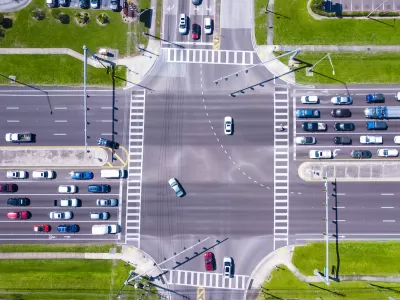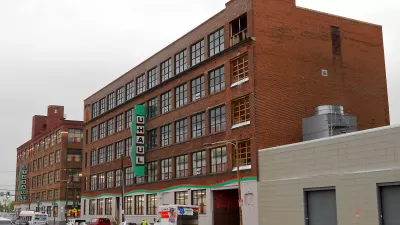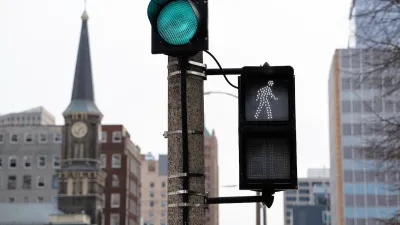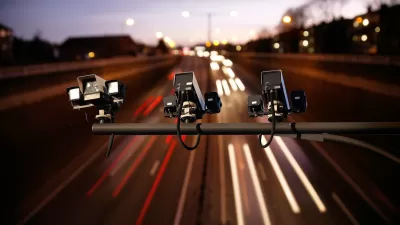And how transportation decisions could more effectively prioritize safety.

Writing in Streetsblog San Francisco, Roger Rudick describes the view of a transportation engineer working in the Netherlands, who says the American approach to transportation engineering contributes to our high number of road deaths and poor pedestrian infrastructure.
According to transportation engineer Steffen Berr, “the American transportation system is fundamentally broken because ‘transportation engineering’ is a specialty within civil engineering when it's really a separate field. They think ‘transportation engineering is just where the paint goes. They don't know what transportation infrastructure actually is.’”
For Berr, “It's why cities continue to widen streets or refuse to implement lane reductions that would actually reduce traffic congestion.” And “It's why American DOTs violate fundamental principles of safety, such as isolating the largest vehicles from the smallest and most vulnerable to the extent it's possible, and limiting speed with infrastructure wherever it's not.”
Berr says it’s not that the Dutch don’t complain about loss of parking. But engineers there take a more collectivist approach. Berr says “his responsibility as a European transportation engineer is to provide a street for everyone, not one for car throughput and parking, with every other consideration made secondary.”
FULL STORY: American-Dutch Engineer Calls Out Root Problem with American DOTs

Manufactured Crisis: Losing the Nation’s Largest Source of Unsubsidized Affordable Housing
Manufactured housing communities have long been an affordable housing option for millions of people living in the U.S., but that affordability is disappearing rapidly. How did we get here?

Americans May Be Stuck — But Why?
Americans are moving a lot less than they once did, and that is a problem. While Yoni Applebaum, in his highly-publicized article Stuck, gets the reasons badly wrong, it's still important to ask: why are we moving so much less than before?

Research Shows More Roads = More Driving
A national study shows, once again, that increasing road supply induces additional vehicle travel, particularly over the long run.

Judge Halts Enforcement of Anti-Homeless Laws in Grants Pass
The Oregon city will be barred from enforcing two ordinances that prosecute unhoused residents until it increases capacity and accessibility at designated camping sites.

Advancing Sustainability in Los Angeles County Schools
The Los Angeles County Office of Education’s Green Schools Symposium brings together educators, students, and experts to advance sustainability in schools through innovative design, climate resilience strategies, and collaborative learning.

Using Old Oil and Gas Wells for Green Energy Storage
Penn State researchers have found that repurposing abandoned oil and gas wells for geothermal-assisted compressed-air energy storage can boost efficiency, reduce environmental risks, and support clean energy and job transitions.
Urban Design for Planners 1: Software Tools
This six-course series explores essential urban design concepts using open source software and equips planners with the tools they need to participate fully in the urban design process.
Planning for Universal Design
Learn the tools for implementing Universal Design in planning regulations.
City of Moreno Valley
Institute for Housing and Urban Development Studies (IHS)
City of Grandview
Harvard GSD Executive Education
NYU Wagner Graduate School of Public Service
City of Cambridge, Maryland
Newport County Development Council: Connect Greater Newport





























